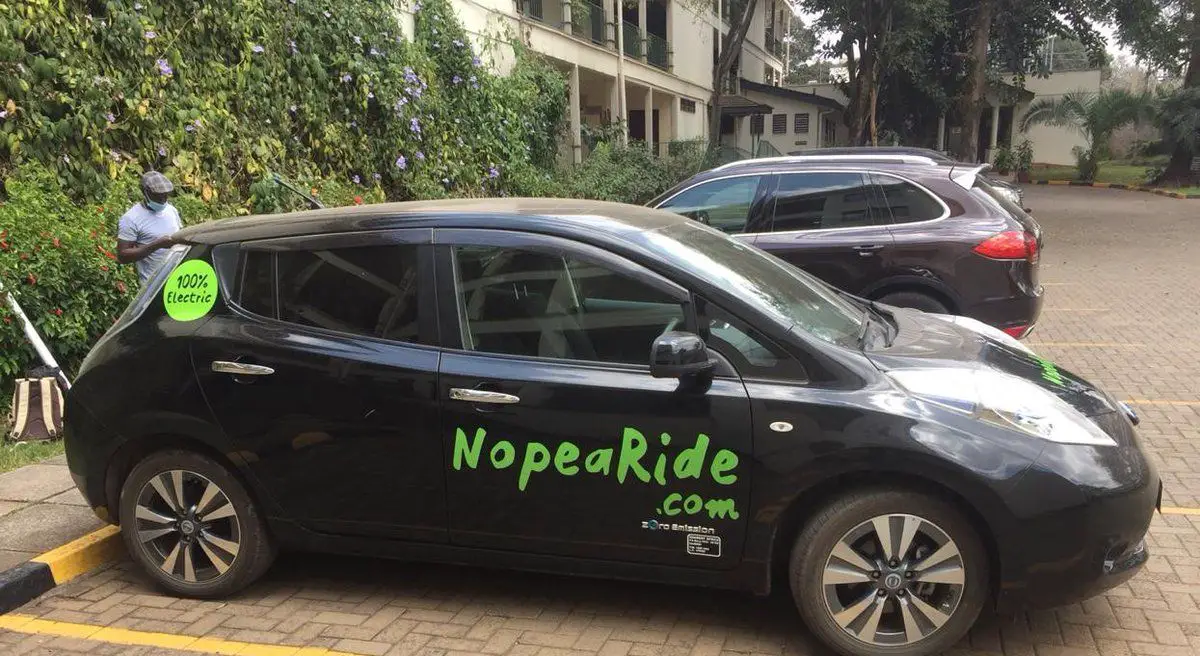Kenyans to embrace more electric vehicles.
Kenya is a pacemaker in renewable energy, with 92.3% of electricity generated locally in 2020 from hydro, thermal, and wind power—thrice the amount that renewables contributed to electricity generation globally.


Kenya is a pacemaker in renewable energy, with 92.3% of electricity generated locally in 2020 from hydro, thermal, and wind power—thrice the amount that renewables contributed to electricity generation globally.
The country is also forward-thinking in the electric vehicle space. Only approximately 350 of Kenya’s 2.2 million cars are electric, but the country is looking to increase this number.
In 2019, Kenya reduced the import duty for fully electric vehicles. The following year, it released a strategy to increase the adoption of EVs while reducing the amount it spends on importing petroleum and cleaning the environment. Measures in the strategy include having public buildings and new estates incorporate charging stations.
The country’s power utility, Kenya Power, plans to build charging points countrywide and push for further reduction of import taxes for electric cars.
During an electric vehicle Auto Expo held in Naivasha, several electric vehicle stakeholders urged Kenyans to switch to electric cars. It is the move to raise awareness of clean mobility and support possible investors in alternative fuel technology.
Vehicle and Equipment Leasing Limited [VAELL] Managing Director Bertha Mvati, praised the government's support for the adoption of electric vehicles. Mvati said the move is to help the country achieve its climate change obligations through low carbon emissions and reduced noise pollution.
The expo is timely because it aims to promote electric mobility devices such as vehicles and motorcycles, considering that the country(Kenya) is experiencing a fuel shortage. Mvati called the government agencies to review and evaluate electric car incentives and stimuli that will encourage more adoption locally, including tax exemptions for electric automobiles to reduce the price gap with conventional vehicles.
It is crucial for the government to review these tax measures as consumers are concerned with the high cost of purchasing a new electric car compared to internal combustion engines( fossil fuels).
She added that the government should also offer flexible inducements to local electric car assemblers, manufacturers, and importers of electric batteries.
The director also called for enhanced public-private partnerships that would create a more conducive environment for private players to venture into the development of electric infrastructure and promote fair competition in the market.
The electric vehicle exhibitors touted the cars as environmentally friendly, offering a more delightful experience to drivers and passengers with low maintenance costs compared to fuel-charged cars.
Taxi-hailing Bolt Regional Manager Kenneth Micah said the company has already launched the Green option service on its mobile application platform that allows riders to choose an electric taxi that is less pollutant.
The company currently offers incentives to fleet owners who adopt electric vehicles on its platform through reduced commission rates that have seen its electric taxis hit 100 units. He said electric cars offered more savings to the user of up to 40 percent per kilometer due to low running costs compared to using fuel.
Future cities must provide efficient and environmentally friendly mobility alternatives to reduce individual dependence on personal cars and improve the quality of life through reduced traffic, harmful emissions, and noise pollution. The stakeholders have engaged both national and county governments where they operate on the need to support the electric-related infrastructure and support systems such as charging points in urban and rural areas.
Working to transform areas including public transportation, motorcycles, and taxis, the companies are looking to capitalize on Kenya’s position as a global leader in renewable energy, its wide tech adoption, and the government’s push for electric vehicles through friendly policies.
BasiGo, Roam, Kiri, Nopea Ride, EVM Africa, Caetano, and Agilitee Africa are companies pushing for the use of electric vehicles in Kenya.
Source:
i) Carlos Mureithi (2022) Startups are eyeing Kenya as an African EV hub
ii) Erastus Gichohi and Calvin Osiemo(2022) Kenyans Urged To Embrace Use Of Electric Vehicles




